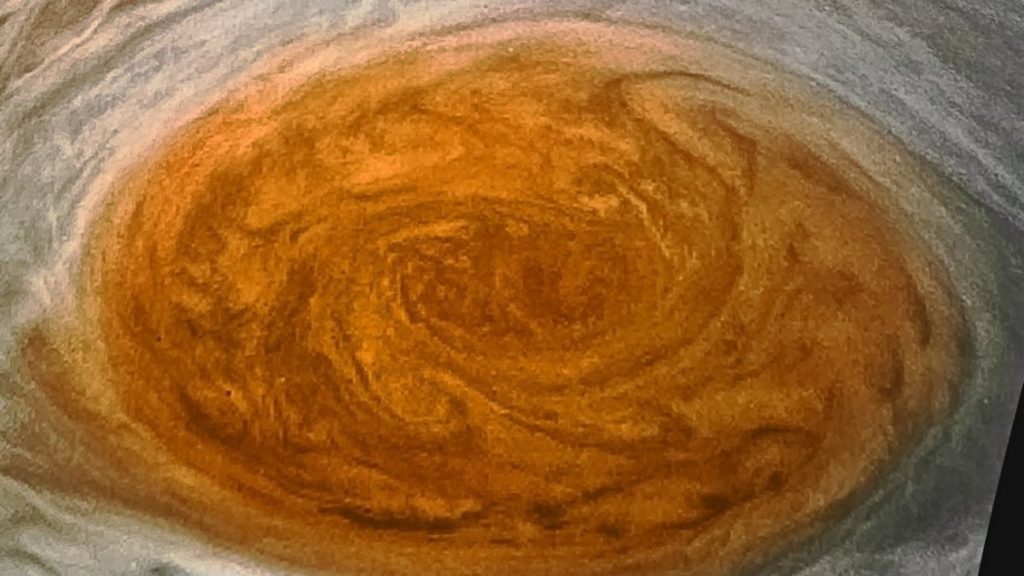With a massive planet come massive storms.
Such storms on Jupiter are the focus of a new citizen science project hosted on Zooniverse. Jovian Vortex Hunter (opens in new tab) launched Tuesday (June 21) to allow anyone around the world to help scientists search for storms on the largest planet of our solar system.
The project, which pores through data from NASA’s Juno spacecraft, is “aimed at studying the different types of clouds that form on Jupiter, in order to better understand how the atmosphere of the largest planet in solar system works,” Ramanakumar Sankar, the lead of the project and a postdoctoral researcher at the University of Minnesota, wrote in a blog post (opens in new tab).
Related: Juno snaps stunning photos of crescent Jupiter and Ganymede
Juno has been operating at the huge planet for nearly six years (it arrived on July 4, 2016). Already, its JunoCam project allows citizen scientists to enhance raw imagery from the spacecraft.
The new project will focus on vortices that form in the clouds of Jupiter, which puzzle scientists with many questions about their formation and evolution, Sankar wrote.
“There is very little we know about why the clouds in vortices have so many colors — is it due to the atmospheric composition? Or are the clouds forming at different altitudes, where the pressure and temperature affect the crystalline structure, resulting a different color?”
The researchers are hoping to tackle these topics by asking project participants to catalog where vortices are forming, which helps the physicists figure out their origin story.
The project plans to generate a catalog of different types of vortices, and to “match them with the underlying physics/chemistry of the location that they form in,” Sankar wrote.
“With your help,” he added, “we could learn so much about the Jovian atmosphere and processes that form the amazing clouds that we see.”
Follow Elizabeth Howell on Twitter @howellspace (opens in new tab). Follow us on Twitter @Spacedotcom (opens in new tab) and on Facebook (opens in new tab).

